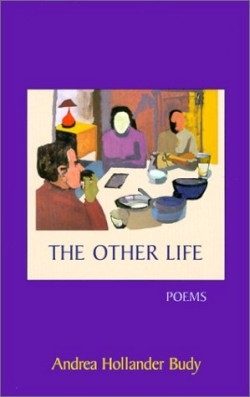The Other Life
By beginning her poetry collection with Oscar Wilde’s adage: “One’s real life is so often the life that one does not lead,” Budy prepares the reader for the disjuncture that follows. Life as it is, gives way to the alternative: “that world where I live that only/writing this poem/makes real.”
“What the mouth knows/but cannot speak” is a tension that can be mediated by this writer, who titles one piece “The Confessional Poet,” and opts not to run away from the darker versions of things. In this world—which is not necessarily better than the other—the tone is somber, nostalgic, and accomplished with prolific use of the past tense. Budy’s lines traverse, even caress, dusty still lifes as if trying to bring them back to life—though one might wonder why, given the lack of uplift in this place.
Elsewhere, Budy shifts from first person, live-and-on-the-scene narratives, to poems in which the persona is fashioned at a distance. She even constructs the movements and breath of someone despised, so that she may better articulate her suffering.
Mainly this is a book that unabashedly declares the disappointments of life and particularly of men. The father, a philanderer, eventually takes his own life while the daughter sleeps; the husband is the sort that walks out of divorce court, whole and unabandoned. This is not light reading, and key to appreciating these poems is the ability to withstand the grayness of the existence portrayed on page after page.
Reviewed by
Holly Wren Spaulding
Disclosure: This article is not an endorsement, but a review. The publisher of this book provided free copies of the book to have their book reviewed by a professional reviewer. No fee was paid by the publisher for this review. Foreword Reviews only recommends books that we love. Foreword Magazine, Inc. is disclosing this in accordance with the Federal Trade Commission’s 16 CFR, Part 255.

